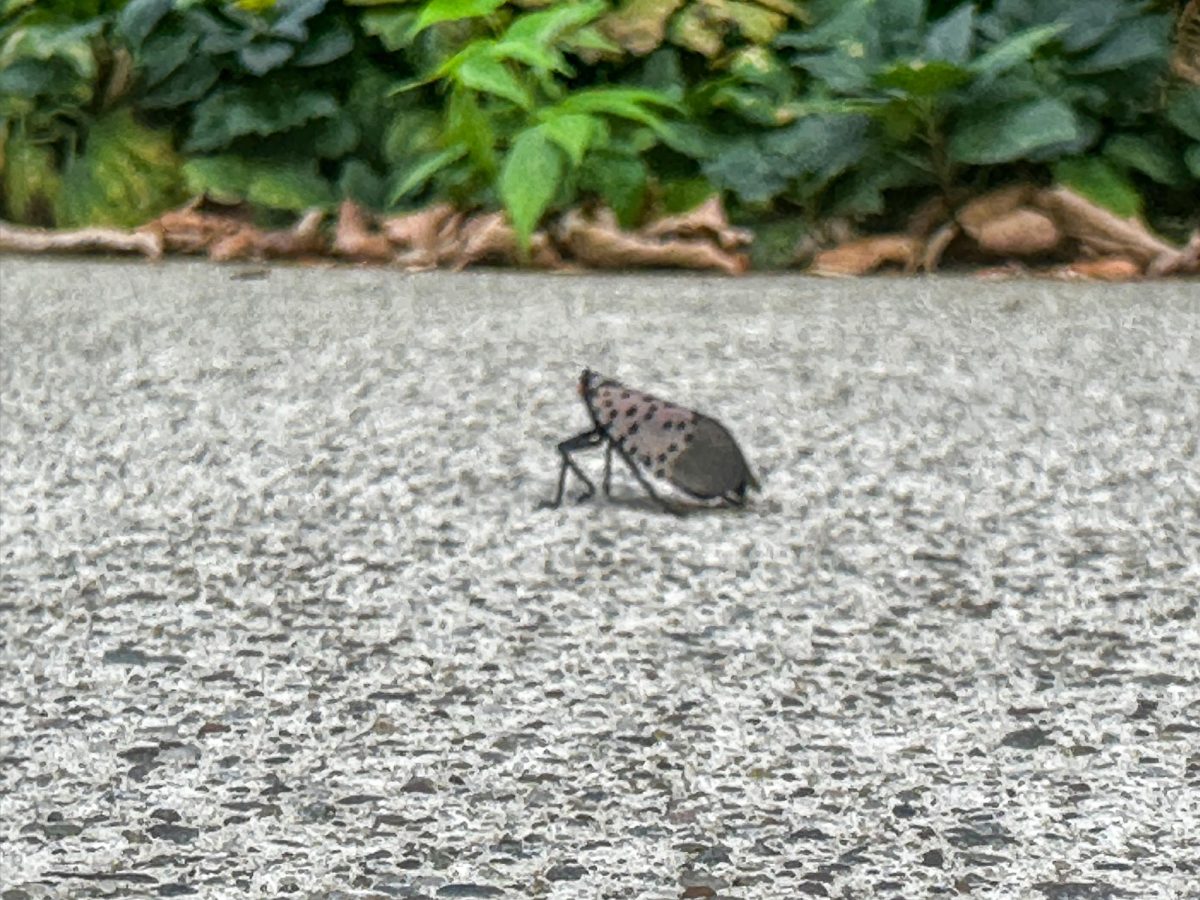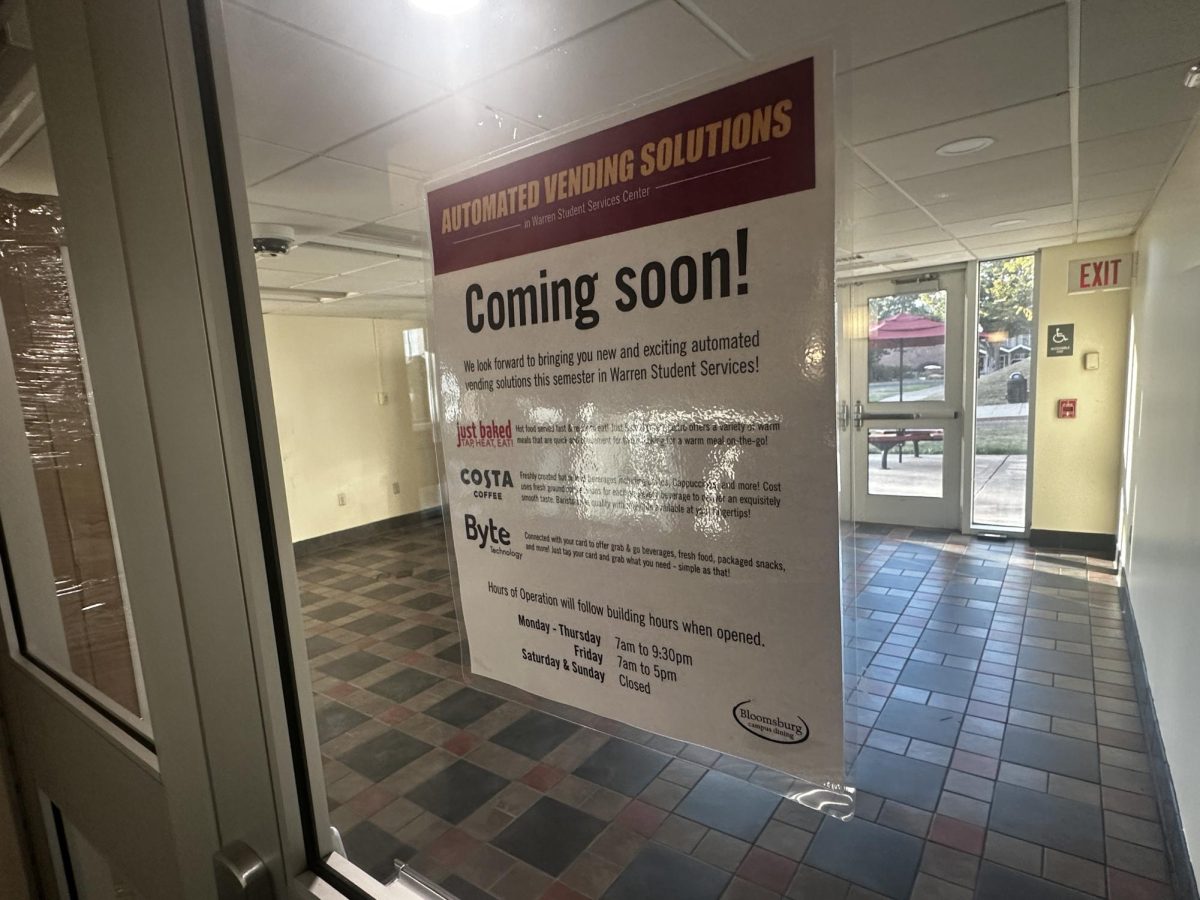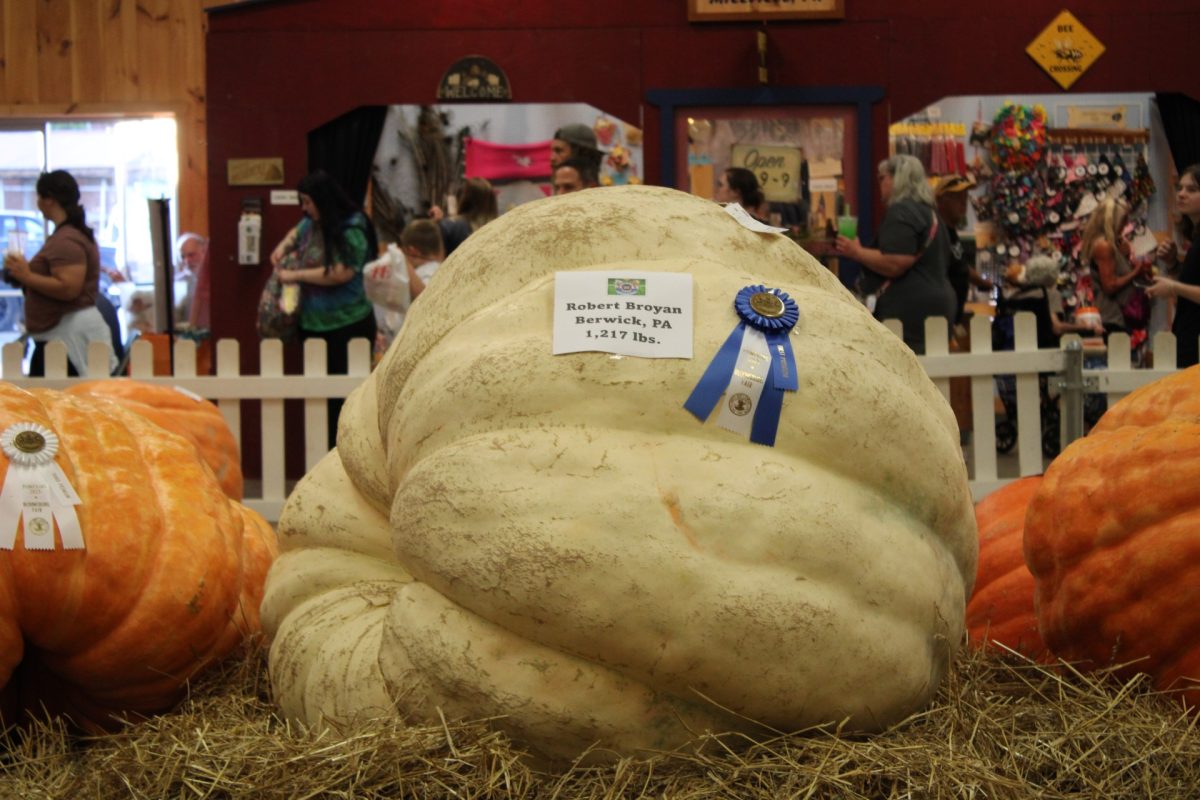This semester there has been a shared campus community complaint – the lanternfly epidemic. The insects have been an annoyance to the Bloomsburg campus. The solution? Clean off your car.
Hundreds of vehicles leave Bloomsburg’s parking lots, carrying small hitchhikers that could spread an invasive species. The campus parking lots have changed from places for students and faculty to park their cars into major gathering spots for the spotted lanternfly.
The spotted lanternfly doesn’t fly well, and it doesn’t travel far in groups. Instead, it survives and spreads by hitchhiking. Females lay egg masses on almost any hard surface, and cars offer many hiding spots, like under wheel wells, along bumpers, beneath license plates, and even on roof racks. When commuters come and go from campus, those eggs and adults travel with them, turning parking lots into launch points for new infestations.
The presence of the “Tree of Heaven”, an invasive tree species that lanternflies like to feed and breed on, makes this problem worse. These trees attract swarms of insects, which then move into nearby parking lots, crawling across vehicles and looking for new surfaces to attach to. Once they secure themselves, they head to the next town, school, or neighborhood without the driver even realizing it.
To address this issue, maintenance crews have started removing the Trees of Heaven” when they can and setting up traps. However, this effort can only go so far without support from the campus community.
Junior Conor Buckley shared his observations about the problem. “I live in Soltz and I always see at least a few of them on the steps right outside of Chick-Fil-A; there’s a ton of lanternfly corpses there too,” he said. When asked if he thought the problem had gotten worse since he first noticed them on campus, he responded, “I mean yea, I think so. It’s like if you kill one of them, three more appear in its place, it’s crazy.”
The best way to slow the spread is also the simplest: check your car. Before leaving campus or when arriving from out of town, take a moment to inspect your vehicle—underneath, around the tires, and near the doors—for egg clusters or insects. This small action could prevent new infestations from taking root in communities across central Pennsylvania.

























